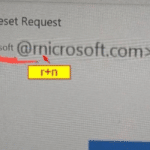Cloud telephony presents an innovative and cost-effective solution for small businesses to stay ahead. It makes it easier for businesses to connect with clients, employees, and partners from anywhere, anytime.
This blog will explore cloud telephony for small businesses, its benefits, and some of the most frequently asked questions.
Cloud telephony, also known as hosted cloud phone service or VoIP (Voice over Internet Protocol), is a modern communication solution that allows businesses to manage calls over the Internet instead of traditional phone lines. It offers a range of features, such as call forwarding, voicemail, and virtual phone numbers, all accessible via the cloud.
This translates to affordable, scalable, and flexible communication systems for small businesses, enabling companies to operate more efficiently while minimising infrastructure costs.
A cloud phone system hosts the essential hardware and software on remote servers accessible through the internet. This eliminates traditional on-site equipment, allowing businesses to manage their communication system from virtually anywhere. One of the standout advantages of this setup is its ease of scalability and remote management, making it ideal for businesses with dynamic needs. Additionally, it offers a range of advanced features, such as call forwarding, voicemail, call recording, and seamless integration with other business tools, enhancing overall communication efficiency and productivity.
Leveraging cloud-based business phone systems can improve business communications and operations and reap many other benefits. Let's explore them in more detail.
Cloud telephone systems are significantly cheaper than traditional phone systems, as you will not have to invest in costly physical hardware or maintenance. Since everything is managed via the cloud, the initial setup is minimal, and monthly subscription plans often come at a fraction of the cost of landlines, resulting in cost savings.
Cloud phone systems allow for growth. As your business expands, so can your phone system, as you can easily add or remove lines and features as needed without the headache of reconfiguring physical systems. This flexibility makes hosted business phones ideal for small businesses anticipating future expansion.
With the rise of remote work, cloud-based systems are a must-have for small businesses. Employees can handle calls from anywhere, manage customer queries, and collaborate with team members from anywhere, provided they have an internet connection. This increased mobility allows businesses to operate seamlessly in today’s flexible work environment.
There is also the added value of video conferencing, either internally in your business or for customers who could never feature with traditional landlines.
Cybersecurity is a top concern for any business, but cloud phone system providers offer robust encryption and security protocols to protect your data and communications. Many platforms also have automatic updates, ensuring your business always uses the latest security features.
Cloud-based phone systems offer features like call routing, voicemail-to-email, and automated attendants to help businesses manage high call volumes and improve customer service efficiency. This leads to quicker response times and fewer missed calls, enhancing the overall customer experience and offering unified communication throughout your business.
As mentioned before, video conferencing offers consumers the added value of better communication with your business, which in turn enhances the consumer's buying experience.

Many cloud phone systems leverage VoIP technology, though using the cloud isn’t mandatory to operate a VoIP setup. VoIP refers to how voice data is transmitted over the internet via packet-switched connections rather than relying on traditional PSTN lines.
VoIP systems provide all the features of a standard PBX at a fraction of the cost, with fewer hardware requirements. Businesses have the option to use SIP trunks, which allow on-premise PBX systems to connect to the cloud, or choose a hosted PBX solution, where all the infrastructure is managed off-site. This setup enables users to make calls from virtually any device—whether it’s a computer, mobile phone, or desk phone—regardless of location.
A hybrid model is often ideal for businesses looking for flexibility. This model combines cloud telephony and traditional PBX systems for optimal performance and scalability. The hybrid approach, often called a cloud PBX system, offers the advantages of both worlds, allowing companies to keep their existing hardware while benefiting from the additional features and cost savings that cloud-based communication provides.
Whether businesses choose a full cloud system or a hybrid approach, both cloud phone solutions deliver powerful, flexible solutions that streamline communication and adapt to a company’s evolving needs.
For many businesses, the thought of switching to a cloud-based phone system raises concerns about potential disruption. Choosing a skilled provider can make all the difference in ensuring the transition is smooth, preventing downtime from impacting your business or customer service.
It’s important to outline your organisation's specific needs early in the process. This enables the provider to craft a service level agreement (SLA) that meets those needs. However, not all providers offer the same support levels; while some offer 24/7 monitoring, others may take up to 48 hours to resolve issues.
Data security is another major consideration when moving to cloud telephony. Sensitive data needs to be handled with care, so it’s essential to work with a provider that has a robust, compliant security framework. For example, some providers like BT employ systems hosted across different locations to ensure extra layers of security and reliability.
Once the migration is complete, your staff can immediately access essential resources, like applications and databases, from anywhere. By using cloud storage, businesses can reduce or eliminate the costs associated with maintaining physical servers, making the communication system more flexible and cost-effective.
Ultimately, trust in your provider is key when making the switch to phone solutions. The ideal provider should have a proven track record working with businesses like yours, supported by success stories and testimonials. They must offer a comprehensive solution, from planning to troubleshooting, and provide SLAs and security measures that fit your company’s requirements, ensuring a safe and seamless transition.
The UK telecoms landscape is undergoing a major transformation, with the phasing out of ISDN and PSTN systems set to be completed in the next two years. By 2025, the traditional analogue phone line or copper-based PSTN and ISDN network will be completely deactivated, marking a significant milestone in the world's shift towards fully digital networks.
The switch off is set to affect both business and home phone lines along with other non-voice services such as alarms, CCTV systems and EPOS machines. This means existing infrastructure and hardware connected to both PSTN and ISDN lines will no longer function.
Instead, these will be replaced with software which can use Internet Protocol (IP) technology, which can transmit voice in a digital format using a broadband connection when you make or receive a phone call, as it will be hosted in the cloud.
Silver Lining offers tailored cloud telephony for small businesses that support the transition to cloud-based communication. With expertise in VoIP, SIP trunks, and hosted PBX systems, Silver Lining can provide scalable, flexible, and cost-efficient services.
Whether you need to integrate with existing systems or switch entirely to a cloud platform, their team ensures a seamless transition, minimising downtime and enhancing business communication. With 24/7 support and a focus on secure, reliable connections, Silver Lining helps small businesses stay connected and future-proof their operations.
The main distinction between VoIP and cloud-based phone systems lies in their roles. VoIP is the technology that enables voice communication over the internet, while a cloud-based phone system refers to the infrastructure hosted in the cloud that uses VoIP technology. Cloud phone systems offer enhanced flexibility, scalability, and remote access, along with a wide range of features and functionalities. This makes cloud-based systems a popular choice for modern businesses looking for a comprehensive communication solution that adapts to their needs.
VoIP (Voice over Internet Protocol) is replacing traditional telephone systems that rely on the Public Switched Telephone Network (PSTN) and ISDN (Integrated Services Digital Network) lines. These legacy systems use physical copper lines for communication, which are being phased out in favour of internet-based systems like VoIP.
The call forwarding feature on cloud-based phone systems allows calls to be redirected to another number, such as a mobile phone, during power outages. While your desk phone might be unavailable, you can still handle calls through an app, ensuring continuous communication.

